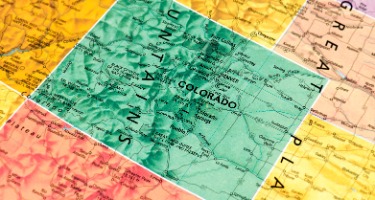On May 14, the U.S. Supreme Court issued a precedent-setting decision invalidating the Professional and Amateur Sports Protection Act of 1992, the federal statute that prohibited sports gambling. As a result of the Court’s decision in Murphy v. NCAA, Case No. 16-476 and 16-477, 584 U.S. __ (2018), states are now free to authorize sports betting within their jurisdictions, thereby opening the way for lawful wagering on sports overseen by a variety of Native American tribes.
The decision will likely make a significant impact on tribes that operate gaming facilities in states where sports betting will be legalized. An estimated $1 billion-plus is wagered, legally and illegally, in the U.S. on sporting events every year, and tribes will be a critical stakeholder in the coming public debate over its expansion.
Such betting is not clearly defined under the 1988 Indian Gaming Regulatory Act (IGRA). However, the National Indian Gaming Commission (NIGC) has defined Class III gaming to include “[a]ny sports betting and pari-mutuel wagering”—a stance echoed by former NIGC general counsel Kevin Washburn. 25 C.F.R. § 502.4(c). Give this designation, it’s likely that tribes cannot offer sports wagering in the absence of a tribal-state compact.
If a state authorizes betting on sports for non-tribal parties, IGRA requires it to permit the identical activity for Indian tribes. 25 C.F.R. § 502.4(c). In some states, tribal-state compacts incorporate forms of lawful gaming adopted by the state subsequent to the execution of the compact by operation of law. In others, tribes have to negotiate an amendment to their existing compact that specifically incorporates sports betting under the gaming umbrella.
In light of these considerations, tribes ought to begin to review applicable state laws to determine how they might lawfully offer sports wagering. In particular, they need to determine whether a compact renegotiation is required, and identify how it can be amended to expand the scope of permissible gaming. It might also be useful to determine if it’s in a tribe’s interest to pursue sports betting as a private commercial entity operating under state law. Of paramount importance, though, is for tribes to assess the effect of legal sports betting on the exclusivity protections within their compact. Tribes in states that do not currently allow sports wagering will have to determine whether they ought to engage in the public debate over its possible legalization.
The end of federal prohibition also raises important questions about IGRA’s applicability. Sports betting within a tribal casino would be squarely within IGRA’s remit. Certain components of such gaming might take place off Indian lands, though, and it remains to be seen what position NIGC or the courts will take as to whether that constitutes Indian gaming under IGRA.
A further wrinkle: Given that sports wagering could well entail placement of bets via computer or phone, it’s also necessary to figure out whether such online gaming is prohibited under state and federal law. Likewise, do the Wire Act of 1961 and the Unlawful Internet Gambling Enforcement Act (UIGEA) of 2008 pose any barriers to tribal participation in sports betting? The former prohibits wagers on any sporting event from passing through interstate communication lines; the latter authorizes injunctive relief to prevent gambling business from accepting payments (including credit-card proceeds) from patrons who place online bets from a state where it’s illegal to do so.
The NIGC, the agency with primary jurisdiction to enforce IGRA, has repeatedly held that games tribes host on their lands that incorporate an element of off-reservation gambling are not authorized by IGRA. Each previous NIGC decision, however, was made against the backdrop of gaming that would have violated the laws of the states in which off-reservation bettors were located. NIGC has issued no opinion on whether IGRA prohibits such gaming where the off-reservation activity is legal. Tribes need to engage both the NIGC and the Department of the Interior to clarify these points.
Given the obvious financial potential of sports betting and the speed with which this area is developing, it’s strongly advisable for tribes to expedite their review of state and federal requirements for participating in sports wagering. It offers a significant opportunity to expand tribal gaming businesses, but a thorough review of state laws, compact provisions, and relevant case law will help ensure that whatever course the tribes pursue ends up a safe bet.
---------
George Skibine is a member of Dentons’ Native American Law and Policy practice. He has extensive knowledge of all aspects of the Indian Gaming Regulatory Act, especially in the areas of class III gaming compacts, revenue allocation plans for the distribution of per capita payments and provisions pertaining to gaming on newly acquired lands.
Alan Fedman is a member of Dentons' Native American Law and Policy practice. He is the former director of enforcement of the National Indian Gaming Commission (NIGC).

















